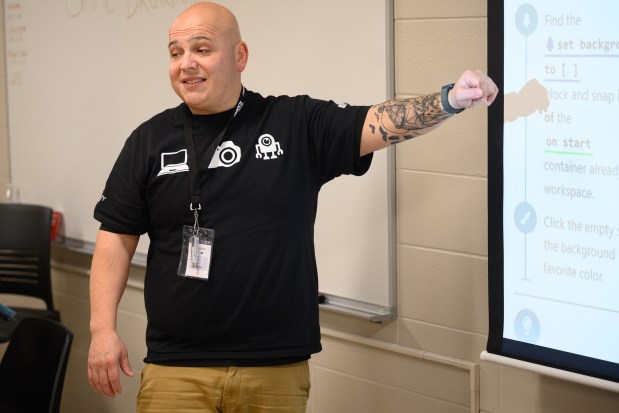CAIRO (AP) — Three days of negotiations with Hamas over a cease-fire in Gaza and the release of Israeli hostages ended Tuesday without a breakthrough, Egyptian officials said, less than a week before the start of the Muslim holy month of Ramadan, the informal deadline for a deal.
The United States, Qatar and Egypt have spent weeks trying to broker an agreement in which Hamas would release up to 40 hostages in return for a monthlong cease-fire, the release of some Palestinian prisoners and an influx of aid to address the humanitarian catastrophe in the isolated territory.
Two Egyptian officials said the latest round of discussions had ended. They said Hamas presented a proposal that mediators would discuss with Israel in the coming days.
Hamas has refused to release all of the estimated 100 hostages it holds, and the remains of around 30 more, unless Israel ends its offensive, withdraws from the territory and releases a large number of Palestinian prisoners, including senior militants serving life sentences.
Jihad Taha, a Hamas spokesperson, said the negotiations were ongoing but “the ball is in the Israeli court.” He said Israel had thus far refused Hamas’ demands for people who fled northern Gaza to be allowed to return and for guarantees of a cease-fire and full withdrawal.
“Hamas is open to proposals and initiatives that are consistent with its position calling for a cease-fire, withdrawal, the return of the displaced, the entry of relief convoys and reconstruction,” Taha said.
Israeli Prime Minister Benjamin Netanyahu has publicly rejected Hamas’ demands and repeatedly vowed to continue the war until Hamas is dismantled and all the hostages are returned. Israel did not send a delegation to the latest round of talks.
An Israeli official said Israel was still waiting for Hamas to hand over a list of hostages who are alive as well the hostage-to-prisoner ratio it seeks in any release deal. It was not clear if that information was included in the latest proposal.
The Israeli and Egyptian officials spoke on condition of anonymity because they were not authorized to brief media on the negotiations.
Benny Gantz, a member of Netanyahu’s War Cabinet and his main political rival, met with senior U.S. officials in Washington on a visit that drew a rebuke from the prime minister, the latest sign of a growing rift within Israel’s leadership.
Mediators had hoped to broker an agreement ahead of Ramadan, the month of dawn-to-dusk fasting that often sees heightened Israeli-Palestinian tensions linked to access to a major holy site in Jerusalem. The month is expected to begin around March 10, depending on the sighting of the moon.
“The negotiations are sensitive. I can’t say there is optimism or pessimism, but we haven’t yet reached a point at which we can achieve a cease-fire,” Egyptian Foreign Minister Sameh Shoukry said Monday.
The war began with a Hamas attack into southern Israel on Oct. 7 in which Palestinian militants killed some 1,200 people and took around 250 hostages. More than 100 of them were released during a weeklong cease-fire in November.
The attack sparked an Israeli invasion of the enclave of 2.3 million people that Gaza’s Health Ministry says has killed more than 30,000 Palestinians. Aid groups say the fighting has displaced most of the territory’s population and pushed a quarter of the population to the brink of famine.
The U.N. children’s agency said Monday that at least 10 children have reportedly died in isolated northern Gaza because of dehydration and malnutrition.
“There are likely more children fighting for their lives somewhere in one of Gaza’s few remaining hospitals, and likely even more children in the north unable to obtain care at all,” Adele Khodr, the UNICEF regional director for the Middle East and North Africa, said in a statement.
“These tragic and horrific deaths are man-made, predictable and entirely preventable,” she added.
The Gaza Health Ministry said Sunday that 15 children have starved to death at the Kamal Adwan Hospital in northern Gaza and another six were at risk of dying from malnutrition and dehydration. It was not clear if the children had underlying medical conditions that increased their vulnerability.
Northern Gaza, the first target of Israel’s offensive, has suffered mass devastation. The World Food Program recently suspended aid shipments to the north, citing the breakdown of security. An attempt by the Israeli military to bring in aid ended in tragedy last week when over 100 Palestinians were fatally shot by Israeli forces or trampled to death in a melee.
Up to 300,000 Palestinians are believed to remain in northern Gaza after Israel ordered the evacuation of the entire region, including Gaza City, in October. Many have been reduced to eating animal fodder to survive. The U.N. says one in six children under 2 in the north suffer from acute malnutrition.
The United States and other countries have carried out air drops in recent days, but aid groups say the expensive, last-ditch measure is not enough to address the soaring needs.
Israel is still carrying out strikes in all parts of Gaza and has threatened to expand its ground offensive to the southernmost city of Rafah, where around half of Gaza’s population has sought refuge. Gantz has said the Rafah operation could begin as soon as Ramadan if there is no deal on the hostages.
Gaza’s Health Ministry said 97 people had been killed over the last 24 hours. bringing the overall Palestinian death toll to 30,631. The ministry does not differentiate between civilians and combatants in its figures, but says women and children make up around two-thirds of the total casualties.
Israel says it tries to avoid harming civilians and blames the high toll on Hamas because the militants operate in dense, residential areas. But the army rarely accounts for individual strikes, which often kill women and children.
___
Goldenberg reported from Tel Aviv, Israel, and Shurafa from Rafah, Gaza Strip. Associated Press writer Abby Sewell in Beirut contributed.
___
Find more of AP’s coverage at https://apnews.com/hub/israel-hamas-war



